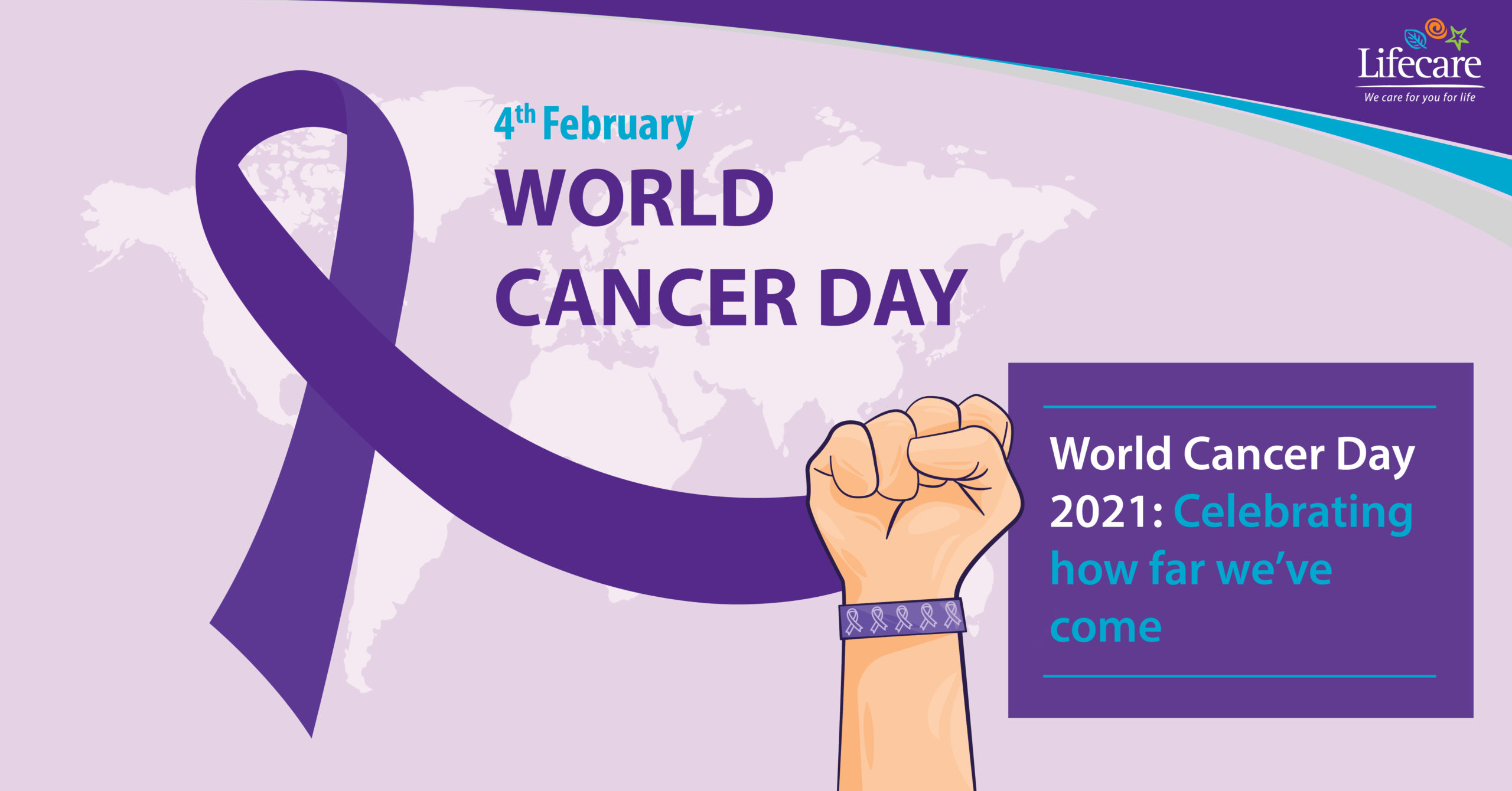Lifecare takes a look at the highlights of critical cancer research and medical developments, as we mark the international day of awareness of the disease that is so close to so many.
It is easy to be scared by some of the statistics linked to cancer, but there is also so much to celebrate when it comes to global cancer research, prevention, advancement in treatments, and an increasing level of acceptance that our lifestyle choices are directly linked to our long-term health. On World Cancer Day 2021, Lifecare is highlighting the huge improvements and deeper understanding we now have of the disease, which the World Health Organization maintains is now between 30-50% preventable.
Targeted treatment
For a long time, cancer treatment was a ‘one-size-fits-all’ concept, but in the last decade, this has drastically developed into an approach where doctors use detailed genetic information of a person’s specific cancer to tailor their treatment. Gene sequencing has become less expensive, as institutes such as the American Cancer Society have funded research and development to create fast and effective ways to analyse large amounts of genetic data and DNA mutations.
We have also seen a breakthrough in ‘liquid biopsies’, following the discovery that many tumours will emit ‘markers’ (called circulating tumor cells or CTCs) into the bloodstream. This offers a minimally-invasive way of finding the existence and location of early-stage cancers, and provides doctors with critical information on how best to treat it.
Exciting advances in immunotherapy
Immunotherapy is an extremely exciting advance in cancer treatment, which has resulted in dramatic change. Essentially, scientific researchers around the world have created drugs to trigger the body’s natural immune system to recognise and attack cancer, which it is not strong enough to do without assistance. These drugs, in combination with chemotherapy or by themselves, have resulted in significantly longer overall survival for patients than chemotherapy alone, as confirmed by Cancer Treatment Centers of America.
Three key types of immunotherapy have emerged and been FDA-approved in the last decade. The first is the use of immune checkpoint inhibitors, which work to remove the natural ‘blocks’ our body creates to prevent our immune responses from being too strong. The second is T-cell transfer therapy, where immune cells are extracted from a tumour, grown in a lab and put back into the body, giving them far more chance of fighting the specific cancer it houses. The third type of immunotherapy which has transformed cancer treatment in recent years is monoclonal or therapeutic antibodies, which have been successfully created with the ability to ‘mark’ cancer cells, highlighting them for our immune systems to discover and attack far more efficiently.
We’ve wised up
Campaigns such as World Cancer Day, and the unrelenting efforts and funding put forward by so many international charities and institutes is having a huge impact on the level of acceptance we have that our lifestyle choices are linked to our likelihood of developing cancer.
The two leading causes of preventable cancers are smoking/tobacco use and obesity, but the American Cancer Society believes that people are now more informed about these modifiable factors, and more likely to take action to remove themselves from these categories. The most significant results can be seen in the global downturn in smoking and tobacco use, which has led to a huge 31% decrease in cases of lung cancer worldwide since 1991, according to the 2021 Annual Cancer Statistics Report.
With more awareness and information sharing on cancer, will come even more progress in the global fight to prevent, treat and cure the disease. To find out how Lifecare can support you best, kindly get in touch with our team: Click here
Sources: American Cancer Society, Cancer Research UK, Cancer Treatment Centers of America, National Cancer Institute, New Scientist, World Health Organization.

